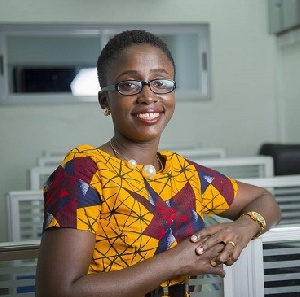Dr Abena Tannor, a Physical Rehabilitation Specialist at the Komfo Anokye Teaching Hospital has advised parents of children with cerebral palsy to adapt locally available materials to therapy tools for use by their children at home.
She said: “You can adapt the plastic basin as seating equipment for your child to sit in by cutting some part of the basin and stuffing it with ordinary blanket or wrap the handle of a spoon with bandage to make it bulky enough for your child to use.”
Dr Tannor gave the advice when the Special Mothers Project, an advocacy and awareness creation programme on cerebral palsy hosted her at their quarterly meetings.
She gave practical advice and showed pictures of locally available materials that could be adapted and use as therapy tools in the home.
She also advised the parents on best health practices, healthy nutrition and the need to advocate inclusive education especially for children with cerebral palsy.
Dr Tannor who is Ghana’s only physical rehabilitation specialist also called for government’s support in terms of training more rehabilitation specialists to assist parents of children with cerebral palsy and other disabilities.
She advised parents to be proactive and become effective advocates of their children by learning about the condition to enable them educate others and create more awareness.
Mrs Hannah Awadzi, Executive Director of the Special Mothers Project urged parents to empower themselves to be in a better position to manage their children.
She said the Special Mothers Project hoped to facilitate the creation of a network of support systems and services to make it easier for parents to access services and enhance the lives of families raising children with cerebral palsy
Mr Samuel Wiafe a Psychologist and Founder of Rare Disease Ghana spoke to the parents on the need to live beyond their children’s diagnosis.
He said it was important that parents of children with cerebral palsy live beyond their children’s diagnosis by ensuring that they balance their emotional life.
“All over the world parents of children with rare disease have become experts in managing their children’s condition and parents of children with cerebral palsy in Ghana can do same,” Mr Wiafe said.
Health News of Monday, 6 August 2018
Source: ghananewsagency.org

















